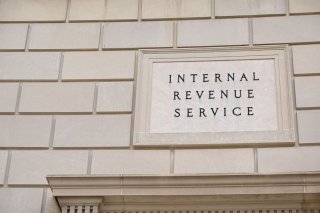Study Finds the IRS Audits Low-Income Americans More Frequently
A new report ties the issue to the IRS’ underfunding and understaffing.
Tax season is underway, and it’s been something of a season of crisis for the Internal Revenue Service (IRS). The agency has admitted that it is understaffed and underfunded, with the National Taxpayer Advocate having laid that out in a report to Congress last year. There was also the recent debacle of ID.me, the controversial vendor that the IRS contracted to facilitate “video selfies” for verification until an outcry led to its cancellation.
Now, there’s another new report that doesn’t paint the IRS in a particularly sympathetic light. The report, from Syracuse University’s Trac IRS, found that the IRS is more likely to audit poorer families than the rest of the population.
“A large increase in federal income tax audits targeting the poorest wage earners allowed the Internal Revenue Service to keep overall audit numbers from further declines for Americans as a whole during FY 2021,” the report said. “That resulted in these low-income wage earners with less than $25,000 in total gross receipts being audited at a rate five times higher than for everyone else.”
Per the report, the lowest-income wage earnings are audited at a rate of thirteen per 1,000 returns filed, while “everyone else” is audited at a rate of 2.6 per 1,000. Overall, the agency audited four returns out of every 1,000, although audit rates have been dropping for many years.
The Transactional Records Access Clearinghouse found the records in internal IRS reports that were obtained through a Freedom of Information Act request.
The majority of the adults were “correspondence audits,” which is when the IRS sends a letter “asking for documentation on a specific line item on a return.” Most of these were directed at poorer families.
“Over half of these correspondence audits were targeted at the small proportion of workers with incomes so low they had claimed an anti-poverty earned tax credit to offset the tax otherwise due on their modest earned income,” the report said. “To repeat: over half – fully 54 percent – of all correspondence audits last year targeted the small proportion of returns with gross receipts of less than $25,000 claiming an earned income tax credit.”
Why is this the case? The Trac IRS report ties it to the IRS’ underfunding and understaffing.
“The source of the problem: years of starving the IRS for resources so that there were simply too few people to adequately staff the agency. This was compounded because, during the pandemic, Congress had assigned the IRS more and more vital responsibilities,” the report said.
The National Taxpayer Advocate, Erin M. Collins, referenced this specific problem in her report to Congress last year.
“The IRS correspondence audit process is structured to expend the least amount of resources to conduct the largest number of examinations—resulting in the lowest level of customer service to taxpayers having the greatest need for assistance,” Collins said in the report.
Another part of the problem, per Collins’ report, is that “the IRS reduce[d] non-compliance in the Earned Income Credit program, a special tax benefit for low-income Americans,” which has led the IRS to devote a disproportionate amount of its limited resources to go after that specific issue.
In addition, the IRS has been auditing very few millionaires, with just about 2 percent of them audited. Part of the problem is that auditing millionaires, who have both more complex returns and more access to tax attorneys, is difficult.
“Over this same short span of time [since 2015], the odds of audit fell even more because the sheer number of millionaire returns has grown by 50 percent. Thus, the odds of an audit have been plummeting. IRS recorded 617,505 millionaire returns filed that were available to be audited in FY 2021. With only 13,725 millionaire audits last year, more than 600,000 millionaire returns were NOT audited… The scales have tilted towards IRS targeting less complex issues and returns, and conducting less in-depth audits.”
Axios wrote about the Syracuse report, noting that about 99 percent of taxes owed are paid to the IRS.
“As budget cuts have forced a reduction in many different IRS efforts, how will these steady declines affect the continuing viability of the nation’s voluntary federal income tax system? Only a small proportion of tax returns and transactions having tax consequences are ever examined. And that proportion has been steadily dropping year after year,” the Syracuse report concluded.
“Compliance with tax requirements, especially for those with income not subject to automatic tax withholding, rests in no small part on the public’s belief that they should comply. How long [will] this belief continue when IRS targets low-income taxpayers because they are simply easier to audit while those with higher incomes escape any examination?”
Stephen Silver, a technology writer for The National Interest, is a journalist, essayist and film critic, who is also a contributor to The Philadelphia Inquirer, Philly Voice, Philadelphia Weekly, the Jewish Telegraphic Agency, Living Life Fearless, Backstage magazine, Broad Street Review and Splice Today. The co-founder of the Philadelphia Film Critics Circle, Stephen lives in suburban Philadelphia with his wife and two sons. Follow him on Twitter at @StephenSilver.
Image: Reuters.

